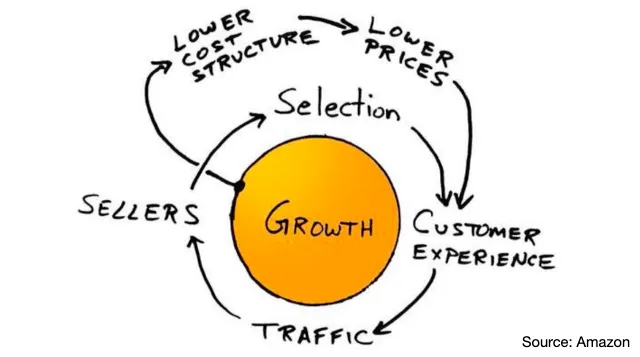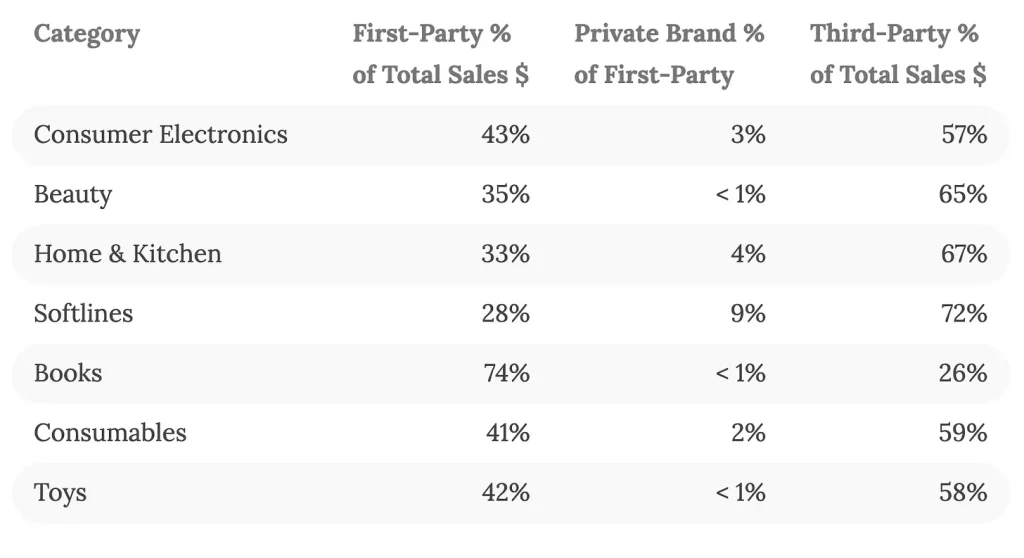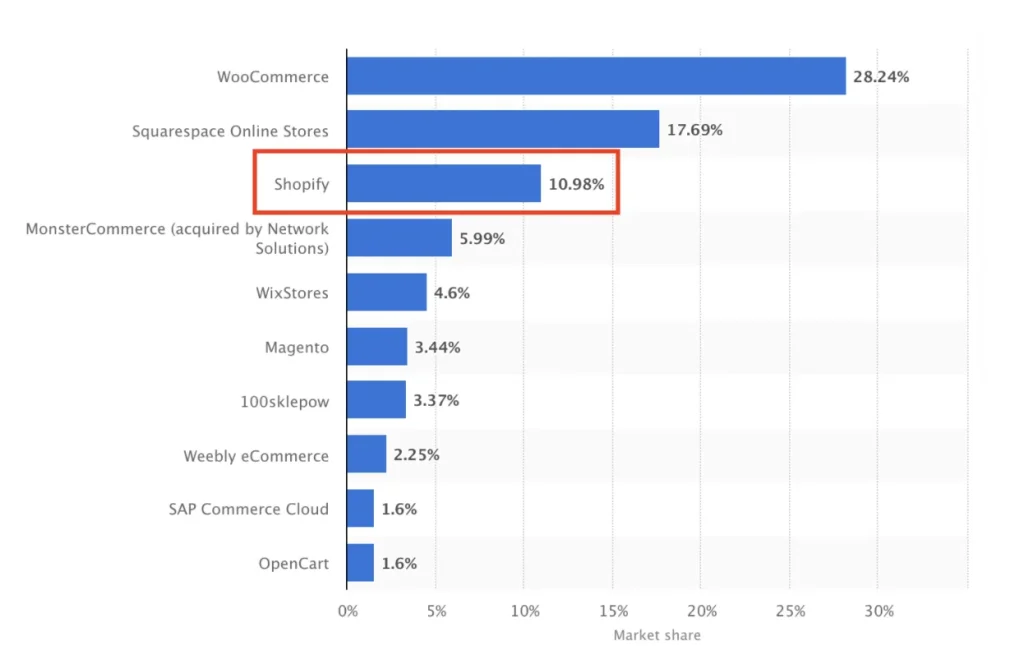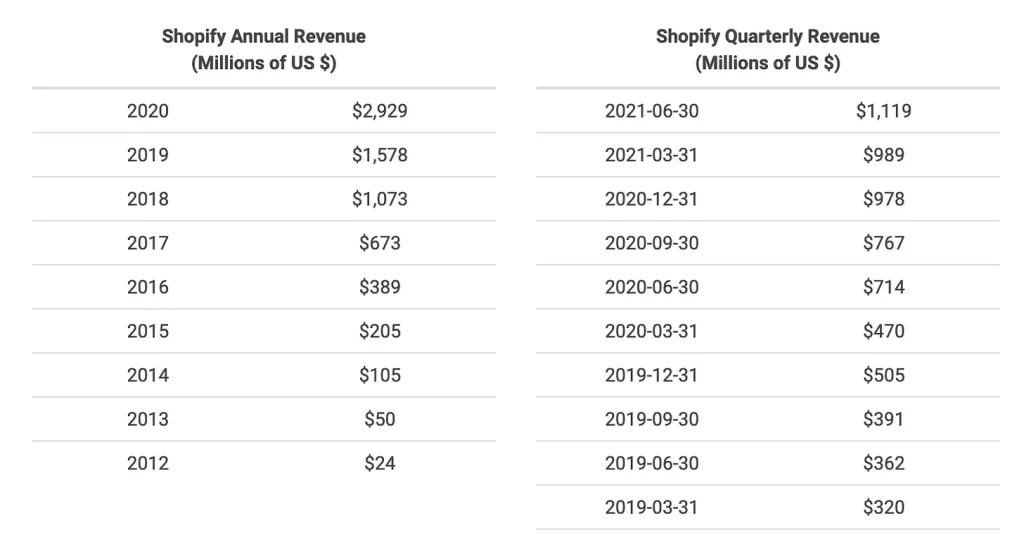Amazon’s private labels are competing with the same ecosystem that the Company worked hard to create. Is this the beginning of the end for marketplaces? Worry not, the era of Shopify has just begun.
Blackjack is by far my favorite casino game. It is one of the few games in which the player’s decisions actually matter, it involves some basic strategy but not to the point where you need a ton of effort to master it. Most importantly, it never raised to the status of “celebrity sensation”, meaning that it comes with the bonus of not having to listen to a bunch of improvised blackjack “experts” giving you unwanted tips on how to play the game. Amen.
For those who are not familiar with the game of blackjack, the objective is to get a hand total of closer to 21 than the dealer without going over 21 (busting). The house advantage of this game comes from a few rules that favor the dealer. Probably the most impactful of those rules is that the players must act before the dealer, allowing the players to bust and lose their bet before the dealer plays. As a (partial) counterbalance to this advantage, the rules tell the dealer to always hit on 16, so if for instance the player has 14 and the dealer 15, the dealer cannot quit while she’s ahead. She must hit until she gets at least 17, which increases the risk of “busting”.
Blackjack, similarly to any other casino game, is based on the idea of “house edge”, a predictable advantage that the casino has over the life of the game. Simply put, the game is designed to give the house a greater overall chance of getting some of the money the player wagered regardless of how they are playing. However, compared to most casino games (e.g. the roulette that has a house edge of 5.26%), Blackjack is a very player-friendly game with one of the lowest house edge, up to 0.66% in an 8 decks game. The relatively low house edge, coupled with a good strategy and relatively low barriers to entry, gives all players significant opportunities to win against the house, contributing to making blackjack one of the most successful casino games.
The promise of a win-win environment is precisely the type of value that any online platform and marketplace contribute to the digital revolution. Healthy online ecosystems are based on the construct that all actors involved need to see value from participating to it. This is what Amazon built over the past 15 years, building a marketplace in which consumers, sellers, vendors and Amazon itself could reap the benefits of a truly global e-commerce platform.
From a consumer perspective, Amazon revolutionized (for the better) the shopping experience at its core, providing consumers with the three things that they actually care about when making a purchase online: large product selection, low prices and fast delivery. Ensuring a consistent and pleasant experience was key to attract and retain customers and that triggered the virtuous circle that we can all see today. More (and happier) customers bring higher traffic to the platform, higher traffic attracts more sellers who want to put their products in front of more customers, more sellers bring a wider product selection which in turns, makes customers happier. This model has worked remarkably well for consumers, who enjoyed a seamless experience across all the variables that truly matter to them as well as for sellers, who benefited from an unprecedented visibility on a new distribution channel.

However, as we all know, often good things aren’t meant to last. Amazon decided that the “house edge” for its marketplace business wasn’t good enough. While being the dealer at the blackjack table gives you the advantage of waiting until all players make their move and possibly bust, it still comes with the annoyance of having to hit on 16 with the remaining players at the table. What if this rule could be changed? What if the dealer could unilaterally decide, after seeing the players’ score, not to hit on 16? And while we are at it, how great would it be if you could be at the same time the dealer and the player at the blackjack table that you host? That would make the “house edge” so much better, wouldn’t it?
This has been, in my opinion, the turning point in Amazon’s history. Amazon created its first in-house brand—AmazonBasics in 2009, to sell everyday household goods. From 2009 to 2017, they launched “only” 30 private label brands and in the last 3 years from 2017 to 2020, they dramatically ramped up their in-house offering, launching hundreds of private labels in more than 50+ markets. Having full visibility on the shopping patterns of millions of users as well as best selling products and relevant prices, Amazon brands can create products similar to best-sellers on the site and sell them for a lower price.
This practice has made Amazon the subject of intense scrutiny and concerns of both government entities and third-party sellers. On July 29th, 2020 in his hearing with the US congress, Jeff Bezos downplayed the impact of Amazon private labels on the company revenues, claiming that those brands make less than 1% within some of their product categories. While the statement is factually accurate, the weight of private labels in some categories can be quite high (9% of sales in clothing). and the pace at which private labels are ramping up would suggest that these numbers are likely to increase significantly in the next few years.

A few months after the hearing, on November 30th 2020 after a long investigation, the European Commission (EC) released an official document accusing Amazon of capturing data from sales of third-party products on the site and then using that data to “calibrate Amazon’s retail offers and strategic business decisions to the detriment of the other marketplace sellers.”.
More recently on July 16th, 2021, Amazon received a record 746 million euro ($888 million) fine by the CNPD, the Luxembourg data protection authority for processing personal data in violation of the EU’s General Data Protection Regulation (GDPR). While no details were disclosed about the reasons for this unprecedented fine, the magnitude of the measure is testament to the increased scrutiny that Amazon is undergoing as a dominant player in the western world.
Blackjack has been a successful game for over 300 years thanks to the relatively low “house edge” that preserves players’ confidence about their odds to win, while being aware of the advantage that the casino retains. The house is still able to make a great deal of profits without having to change the rules of the game. Would players still play the game if the dealer could decide not to hit on 16? I wouldn’t. Undermining sellers’ confidence about the fairness of the process is a risky decision that is not only putting marketplaces like Amazon under scrutiny from regulators and sellers, but it is paving the way for the new generation of e-commerce platforms that are approaching the market in a totally different way. WooCommerce, Squarespace, Shopify, Magento, are some of the companies that are gaining the largest momentum in the space.
Shopify is the company that caught the highest attention of merchants over the past two years thanks to the remarkable progress they have made with commerce entrepreneurs. In essence, Shopify is a subscription based software that allows everyone to build their online store and starting to sell their products. Sellers can create their online brands online and Shopify will provide all the business tools they need in one integrate platform. From website design, to payment processing, SEO and marketing tools, fast checkout process, sellers can build their own shop without having to compete with other merchants on the same marketplace. In an interview with Bloomberg Technology, Tobias Lütke, Founder and CEO of Shopify explained that the mission of the company is to “make entrepreneurship more approachable, common and easy”.

There is no doubt that Amazon and its private label strategy has opened up an incredible opportunity for platforms like Shopify to win the hearts of merchants by providing a new space in which they can compete independently and fairly. As a result, Shopify now powers more than one million businesses in more than 175 countries across the globe, reaching total revenues of $2,929.5 million in 2020, an 86% increase over 2019.

In addition to that, last year Shopify announced a partnership with Facebook and Instagram, with the goal to make the commerce experience more integrated across third party ecosystems. In February 2021, Shopify announced the expansion of accelerated checkout, Shop Pay, to Facebook and Instagram. With this expansion, Shopify Payments will process all transactions by Shopify merchants on Facebook and Instagram upon full implementation of the integration later this year.
Amazon is a power house that has revolutionized for the better the e-commerce experience for consumers, sellers and vendors in an unprecedented way. However, it is now failing to provide a fair ecosystem for merchants by competing with them in most product categories, leveraging on their competitive advantage as marketplace owners. Looking at the future, Amazon may well become the largest single store on planet earth with its own AmazonBasics private labels. However, stay assured that for both entrepreneurs and casino players alike, there will always be a new game with lower “house edge” to be played.